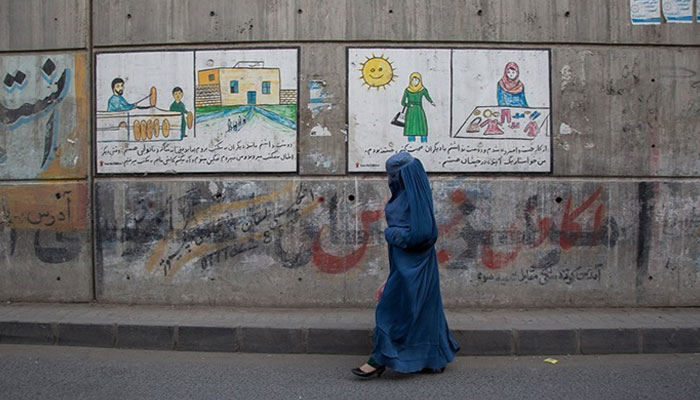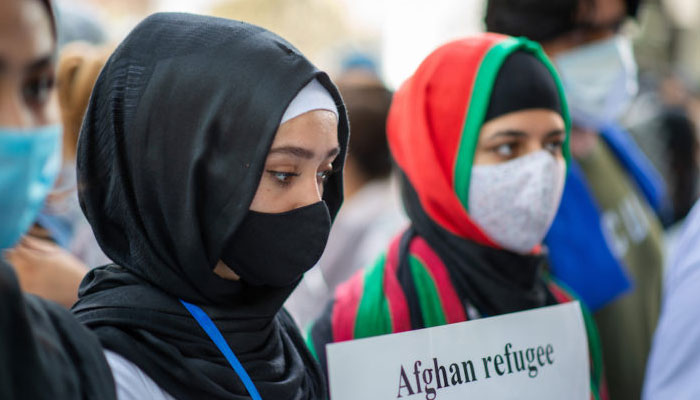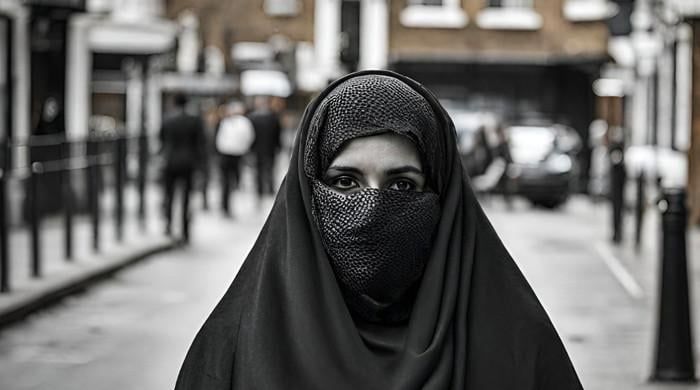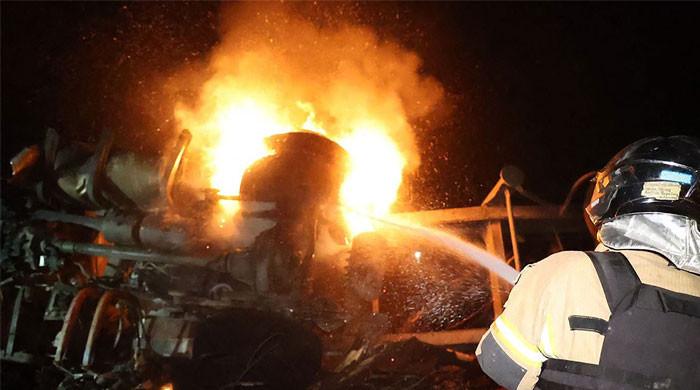Aisha regained consciousness to the vague sound of the plane crew making one of their final announcements. While the voices around her were still blurry, she realized that the stewardess was uttering the words she feared the most.
“We are now landing at Heathrow airport. Please fasten your seat belts.”
“Hearing those same words made me want to jump off the plane,” Aisha said as she listened intently.
I met Aisha back in 2023 at a hotel in London where she was working as a waitress. An amazing personality with an infectious laugh. This was especially fascinating because life in Afghanistan was not easy for her, or for any other woman.
Aisha, whose identity is protected for security reasons, is one of many women who boarded one of the charter flights leaving Afghanistan in 2022, along with her husband, who worked for the British government; They were some of the privileged few who were evacuated when the Taliban took over their country.
It was true that Aisha had imagined a better life abroad. She dreamed of continuing her studies, working and eventually living as a “free” woman. But fate had other plans. In a matter of minutes her joy turned to misery when she lost her husband at the Kabul International Airport due to the chaos at the facility. It wasn't just them who were trying to leave the country, more than 2,000 other people also wanted to flee.
“The next thing I did was cry hysterically on the plane while my husband was stranded at the airport. I wanted to leave and run back to him, but there was no time. The takeoff announcement had already been made. Soon, I witnessed the movement of the plane on the runway and my heart sank even more.”
Aisha added: “I don't remember what happened after that. My friends now tell me that I had passed out for most of the trip. My blood pressure had dropped to 110/90.”
Upon arriving in London, Aisha, along with other migrants, was given shelter in a four-star hotel on High Street Kensington, London. At the tender age of 18, Aisha did not realize that her life would change so much. Her parents, her siblings, her husband, and anyone remotely close to her were miles away.
“The United Kingdom [United Kingdom] The government took good care of me. They gave me a room and breakfast. [and] They allowed me to go out and be alone. They told me I could continue my studies once I finished my paperwork. Everything was what I always wanted. But I was alone, crying day and night to be reunited with my husband,” she said.
In fact, life was better for Aisha in the UK. Women in her country were in dire conditions, forced to take their own lives due to increasing oppression.
Former vice president of the Afghan Parliament, Fawzia Koofi, had told the UN Human Rights Council that Afghan women were “devastated” in the country.

“Every day there are at least one or two women who commit suicide due to lack of opportunities, due to their mental health, due to the pressure they receive,” Koofi said.
The vice president added: “The fact that girls as young as nine are sold, not only because of economic pressure but because there is no hope for them, for their family, is not normal.”
But for Aisha, her state was nothing less than a deep pit of sadness.
“I spent every minute of every day trying to accept my reality. I decided to return, but I didn't have a passport. During phone calls with my husband, I cried to the point of fainting,” Aisha said.
“I remember lying in my room for days with the lights off, staring into the darkness. I liked doing that. It seemed like my life: dark. Other refugees would come to see me and ask me to pull myself together. They reminded me of the conditions women found themselves in in Afghanistan and told me that life was better here. But I only loved my husband. My eyes longed to see him again, to hug him again.
“I asked the Home Office to bring my husband to the UK. “I was told I would have to show a bank statement of approximately £18,000 and that I would have to become a taxpayer to be able to call my husband on a spousal visa.”
The 18-year-old recalled being devastated by the cost she would have to pay to bring her husband to the UK. She had never worked in her life; in fact, she had never left her house in her country.
“I wanted to end my life. I remember walking 20 minutes south of my hotel to a subway station. I wanted to jump off the platform and end it all,” Aisha shared. But she realized that her life was worth more than this. She knew that she was the only hope for her husband.
“I hired a lawyer to find a way out for me. I still remember waiting for her at the reception while she attended to another of her clients. Lacking sleep, I passed out on the couch and woke up to a bump on my shoulder. She was my lawyer, also an Afghan woman. She hugged me and assured me that everything would be okay as I broke down in her arms.”
Soon, Aisha was advised to take a full-time job. Still new in town, she approached the same hotel she was staying at and asked to be a waitress.
“The hotel manager asked me to email him to see what I could do. After a month of waiting, I finally received a follow-up email. I got the job!

And he continued: “It was the beginning of another very long journey. I used to work seven days a week, sometimes double shifts, to save money and bring my husband here. I spent my days crying at work and struggling to hide my tears while guests gaped at me.”
At that moment, I saw Aisha burst into tears. Sharing how she stayed outside the hotel every night and crossed the street just to stare at moving cars, Aisha admitted that she would never forget this painful moment in her life.
After a year of working at the hotel, Aisha was able to sponsor her husband's spouse visa. She now lives with him in a flat in Willesden Green where they both work to make ends meet.
Aisha and her husband are currently waiting for their British passport.
“Sometimes I think about going back. This is not my house. But then I look back and think, 'That's not my house either,'” she tells me.
“I'm stuck in this loop where there is no end and it seems that the moment I accept my reality, I can try to be a happier person,” Aisha sighs.
As of 2022, the United Kingdom has become home to approximately 24,600 Afghan refugees, including Aisha, according to the British government. Of them, around 21,600 have been resettled under the Afghanistan Assistance and Relocation Policy (ARAP) and the Afghan Citizens Resettlement Scheme (ACRS). While some of these Afghans still live on government benefits, others have been able to strike out on their own and build a life in the country.












